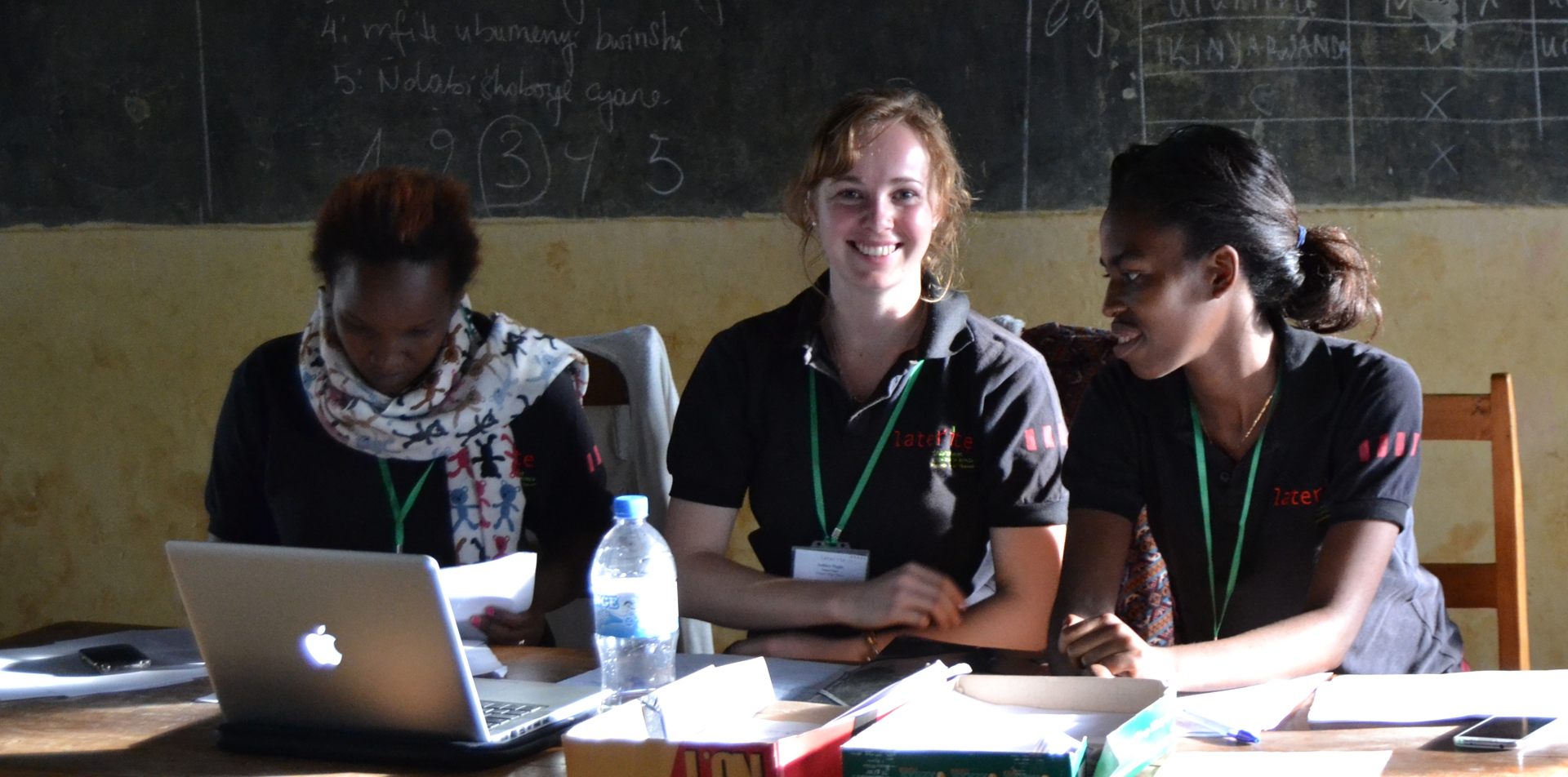In February 2015, after finishing an honours degree in Economics at the University of Cape Town, Ashley Pople joined the Laterite team for a four-month internship with the Research team. Upon arrival, Ashley jumped right in, leading the implementation of an impact evaluation of a Plan International educational project. She also worked on one of our key Lab Projects – developing a Rwanda Household Panel Dataset. Throughout her time here, Ashley has been an integral part of the Research Team. Two months into her internship, we sat down to speak with her about her experience at Laterite.
What were you doing before you came to Rwanda to work with Laterite?
I have recently graduated from the University of Cape (UCT) with my Honours in Economics. Before that, I finished up my undergraduate specialising in Politics, Philosophy and Economics at UCT. In line with these studies, I have always been passionate about socio-economic development in Africa. So I jumped at the opportunity to take a gap year and gain work experience in another state on the continent. Prior to moving over to Rwanda, I first spent a month interning at Genesis Analytics – an Economic research firm based in Johannesburg – compiling a report on Public-Private Partnership frameworks advising an African government.
What made you interested in working in development research, particularly in Rwanda?
My interest in socio-economic issues more generally originates from my teenage years when I would devour books on African history. In the last year of my studies, I was running an educational programme, whereby UCT volunteers would take students from a township school on bi-monthly hikes around Cape Town to supplement their participation in an environment club. Witnessing how the public schooling system was failing them in their ambitions, I was inspired to pursue development research further as a means to rectify these institutional failures. Impact evaluations offer a platform for gaining experience and insights into the workings of the “development world”.
With this experience in hand, I hope to focus particularly on institutional development at the policy level. My choice of situating my work experience in Rwanda was very much deliberate. The country’s history and politics had been a core focus of one of my undergraduate modules at UCT and I was curious… Curious about how a country could progress so quickly given its difficult past. I had also heard that the country was simply beautiful – both in terms of its landscape and the character of its people. My expectations have been exceeded in this regard.
Can you describe some of the projects you worked on?
We have just submitted our endline report for the Teacher Self-Learning Academy programme implemented by Plan Rwanda and funded by DFID. What an experience and a half! I was involved for the entire duration of the project – from designing research instruments to data collection to the analysis using Stata and the like. Compiling the report was both challenging and rigorously stimulating.
I will now be focusing my attention on designing a Rwandan Household Panel Dataset. What this basically entails is creating a panel dataset that is sufficiently representative of Kigali society. The dataset can then be used to collect fast data for social and market research. The issues I will be addressing include the sampling framework, the logistics and the financial costs of the initiative.
What was the most interesting aspect of doing field research?
I loved having the opportunity to travel to parts of Rwanda that I would not otherwise experience. In particular, I found my engagements with teachers and their stories fascinating. For instance, it was evident that the majority of teachers enjoyed teaching, but they were somewhat demotivated by their low salaries and long working hours.
However, my most rewarding experience thus far is grounded in the team dynamic that is so central to the type of work I am currently doing. I have thoroughly enjoyed getting to know the Laterite team. The team is made up of people who are intelligent, ambitious and passionate about what they are doing. We are also encouraged to think laterally about approaches to development research – something that I have yet to experience elsewhere.
What will you be doing after you leave Laterite?
Having finished up with the internship at the end of May, I plan to spend at least a month and a half travelling through Rwanda to Uganda and then onto Ethiopia. East Africa is an incredibly beautiful and vibrant part of the world. There is so much for me to see and experience. Then in September, I will be commencing my Masters in Economics for Development at the University of Oxford.
As part of the MSc, I will be writing a short dissertation. I’m currently on the lookout for a thesis topic, as I am interested in basing it on a socio-economic issue in Rwanda – whether on mobile money or child labour. The data available here is relatively rich in nature.
Ashley is currently a Rhodes Scholar at Oxford University, completing a DPhil in Economics.
